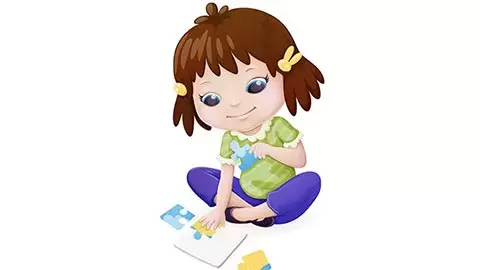All children have their own timetable, but you can watch for certain developments in your 3-year-old. Celebrate with your child as she reaches or nears these milestones.
Child Milestones: Cognitive Development
-
Correctly names as many as eight colors
-
Understands the concept of counting; knows some numbers
-
Sense of time improves (now, later, next)
-
Remembers parts of stories
-
Understands the concepts of same and different
-
Explores cause and effect
-
Likes to classify and organize objects (by size, color); sees patterns
-
Does six- to eight-piece puzzles
-
Identifies some signs and labels
-
Uses role play (“You be the baby, and I’ll be the mommy.”)
-
Likes fantasy play, beyond the pretend play that imitates everyday life (princesses and pirates)
-
Still confuses fantasy and reality
-
Follows three-part commands
Child Milestones: Motor Development
-
Moves effortlessly (walking, running, jumping)
-
Walks forward and backward
-
Rides a tricycle
-
Navigates stairs without support
-
Catches a large ball
-
Throws a small ball overhand
-
Stands on one foot for five seconds
-
Holds a crayon or pencil like an adult
-
Draws a person with two to four body parts
-
Uses scissors
-
Copies some capital letters
-
Dresses and undresses self
-
Almost all have mastered potty training by age 4
Child Milestones: Communication Development
-
Likely knows 300 words by age 3
-
Speaks in sentences of three to four or more words
-
Usually speaks without repeating words or syllables
-
Imitates most adult speech sounds but still mispronounce many words
- Probably chatters continuously
-
Speaks clearly enough to be understood by strangers
-
Tell stories
-
Follows many basic rules of grammar
-
Uses the words "I," "mine," and "you," though not always perfectly
Child Milestones: Social Development
-
Very interested in new experiences
-
Show preferences for certain children
-
Plays with you (not just next to) other kids
-
May have imaginary friends
-
Play house as the mom or dad
-
Understands basic turn-taking
-
Understands the concept of possessives (mine, his, hers)
-
May express anger of frustration by hitting or throwing
-
May show fear of unfamiliar sounds or sights (monsters)
-
Negotiates solutions to problems with parents and other kids
-
Views self as whole person with body, mind, and feelings
-
Increasingly independent
-
May ask questions about birth and death
